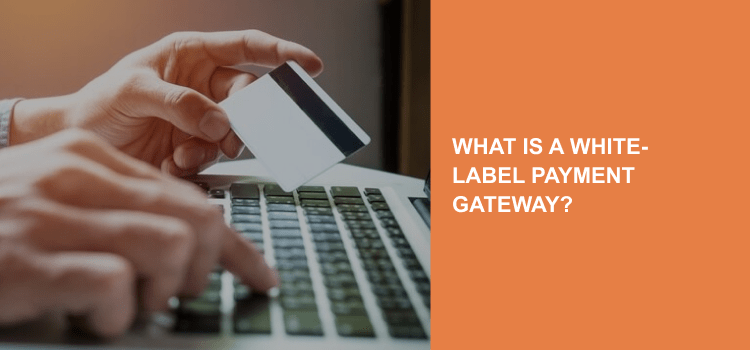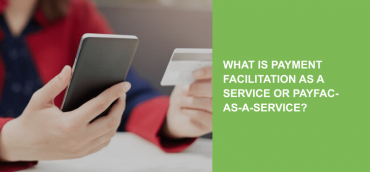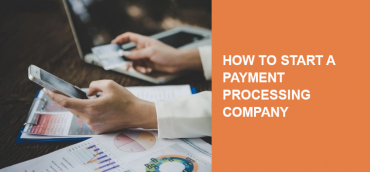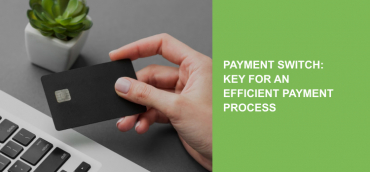In the busy and fast-paced modern world, speed and smoothness are essential when it comes to making payments. The quest for seamless and efficient online transactions has led businesses to explore innovative solutions. Among these, white-label payment gateways have emerged as a game-changer, offering a customizable cutting-edge approach to payments.
In this article, we will comprehensively explore what is a white-label payment gateway, unravel its functionalities, advantages, and the dual impact it holds, benefitting both payment service providers and merchants worldwide.
What is a payment gateway?
To get to the bottom of the white-label payment gateway, let’s first take a moment to explore what a payment gateway is. A payment gateway is a technology that facilitates a secure and seamless transfer of payment information between all parties involved in transaction processing.
Acting as a virtual bridge, it encrypts sensitive data, such as credit card details, and ensures its secure transmission for authorization and processing. Fundamentally, a payment gateway is an integral technology for enabling online transactions.
What is a white-label payment gateway?
A white-label payment gateway is a ready-to-use payment gateway designed for rebranding under the client’s brand identity, allowing them to brand and position it as their own. Basically, it is a sophisticated payment software with multiple features beyond ensuring secure and smooth transaction transfers.
Modern white-label payment gateways provide state-of-the-art payment technologies to enhance conversion rates, decrease declines, and automate manual processes, such as payment analytics, merchant onboarding, recurring payments, and more. Therefore, clients receive not only a pre-built payment gateway but a holistic payment solution capable of addressing diverse payment challenges, quickly adapting to the unique needs of various industries, and standing out competitively in the market.
Who needs a white-label payment gateway?
Having clarified the concept of a white-label payment gateway, let’s figure out who it’s meant for.
The use of white-label payment gateways is widespread. However, they are of particular value for specific business types:
Startup payment service providers
A white-label payment gateway is a wholesome starting point for entrepreneurs who wish to establish their own Payment Service Provider (PSP). Newly established PSPs emerging in the financial technology sector can start their operations with zero software development cost using an advanced white-label payment solution developed by industry experts in contrast to building a payment solution from the ground up, investing hundreds of thousands of dollars and up to a year of development time.
Existing PSPs
White-label payment gateways can be highly beneficial not only to startup PSPs but also to well-established companies. On the one hand, existing payment service providers can switch to a white-label payment gateway from their own payment solution if they feel it can no longer cover their needs regarding high transaction load, modern payment features, lack of integrated banks and payment providers, etc. In this case, a modern white-label payment gateway can be a viable alternative to an outdated payment system.
On the other hand, PSPs that already leverage a white-label payment system have the flexibility to transition to another white-label payment gateway of their choice to address concerns such as cost-effectiveness, desired features, integration development time, and other requirements that may not be met by their current payment provider.
Other Fintech solution providers
Companies that offer financial technology solutions, such as banks, Independent Sales Organizations (ISOs), Merchant Service Providers (MSPs), and other Fintechs, can diversify their offerings and extend their service spectrum by integrating white-label payment gateways seamlessly branded under their corporate brand. It will allow them to grow their client base and generate more revenue without having to build the technology in-house. This approach will enable the expansion of their client base and revenue streams without developing a payment gateway internally.
Merchants across various industries
For global and local online merchants, a white-label payment gateway eliminates the need to develop their own payment system as it offers a cohesive and branded payment experience. Through a white-label payment gateway, merchants can maintain a consistent brand identity throughout the payment process. Plus, by efficiently configuring the system’s advanced technologies, they can customize the gateway to align with the specific requirements of their business. This will enhance payment conversion rates, reducing declines and ultimately deliver a satisfying client experience.
White-label payment gateway: Pros
White-label payment gateways offer multiple advantages, which include:
No development or maintenance costs
By using a white-label payment gateway, businesses avoid the costs associated with building a payment system from scratch. Since there are no upfront development costs, clients can focus their resources on other critical aspects of their business. Plus, they can benefit from a predictable cost structure, which is discussed with the vendor in advance and specified in the contract. Predictable expenses allow businesses to budget and plan ahead, reducing financial risks.
Quick deployment
Being a pre-built payment system, a white-label payment gateway offers fast time-to-market that typically ranges from a few days to a few weeks. This rapid deployment will streamline clients’ payment processes and allow them to start generating revenue from the first month of their operation.
Brandable payment system
A white-label payment gateway is a ready-for-branding system that accommodates a business’s logo and identity, fostering brand consistency. It allows PSPs to market a payment system as their own. In the same way, merchants will benefit from enhanced customer trust, as the payment page can be configured to align seamlessly with their overall website.
Enhanced software security
A white-label payment system must undergo certification for essential standards and regulations, including the Payment Card Industry Data Security Standards (PCI DSS). What makes the system even more secure is that to maintain competitiveness and reputation in the market, vendors strive to incorporate advanced fraud prevention technologies.
A variety of payment options
Modern white-label payment gateways offer an extensive range of integrations with banks and payment providers globally, encompassing both traditional and alternative payment methods like cryptocurrencies, Buy Now Pay Later (BNPL), instant payments, and bank transfers. This versatility allows businesses to tailor their checkout process according to client preferences.
Access to advanced features
As white-label payment gateways are holistic payment solutions, many of them encompass a variety of innovative technologies to make payment processing even more efficient. They include payment routing, cascading, automated analytics, fraud prevention, tokenization, recurring payments, and many more.
High flexibility and scalability
With configurable payment technologies and a vast number of integrations, white label payment gateways are highly flexible and can tailor the payment process to the specific needs of every client. Additionally, the system’s scalability makes a white-label payment gateway sustainable, allowing it to handle increased transaction loads seamlessly and easily expand into new markets.
White-label payment gateway: Cons
Now, let’s examine the primary drawbacks of white-label payment gateways for a balanced review. They include:
No authority over the system
Although a white-label payment gateway is a highly customizable solution, it cannot be compared to an in-house payment system in terms of flexibility. That is why the pre-built nature of this solution may limit businesses with very specific or unique requirements.
Reliance on the provider’s developments and updates
Since a software vendor oversees a white-label payment gateway, they are responsible for software maintenance, updates, and developing new features and integrations. Due to this, clients may face challenges if the vendor declines to create integrations or features at their request or fails to update or enhance the system promptly.
Non-uniqueness of the payment solution
White label payment gateway can rightly be described as a “one size fits all” payment solution. Since you won’t be the sole adopter of the white-label system, all clients will receive the same pre-built solution. To distinguish yourself in the competitive Fintech market, you must infuse uniqueness through your own efforts by employing marketing strategies.
How to choose a white-label payment gateway
Choosing the right white-label payment gateway is crucial for your business success; therefore, preparing beforehand is necessary. First of all, you need to clearly outline your business requirements and goals as well as identify the specific features you need from a payment gateway to accomplish them.
After you research the potential vendors that fit your requirements and create a list of them, make sure to explore the vendor’s experience within the industry and their reputation in the market.
The next step is to assess the vendor’s approach to data protection, encryption, and fraud prevention by ensuring they comply with the necessary security standards, such as PCI DSS. In addition, gather information about the anti-fraud technologies they offer.
Available technologies are also primary factors to consider since they will be your main tools when using the system. Besides, you need to discuss the necessary integrations with the vendor beforehand. Ensure they are willing to provide new integrations and features upon request, especially if these aspects are vital to your business operations.
Last but not least, you need to understand the pricing model of the white-label solution. Consider not only the initial setup costs but also transaction fees, monthly charges, and any extra charges for specific features. To find the most cost-effective solution for your business, compare the costs of different providers.
How Ikajo’s white-label payment gateway can benefit your business
Ikajo is a dependable white-label payment gateway provider serving clients globally for over a decade. Crafted by seasoned Fintech experts, Ikajo delivers a system featuring over 100 payment connectors supporting transactions in more than 150 currencies, including traditional and alternative payment methods and cryptocurrencies. As we maintain a commitment to continuous improvement, the developers regularly introduce new connectors to enhance the company’s service offerings.
Ikajo’s white-label payment gateway is PCI DSS-certified and equipped with:
- Smart routing and cascading
- State-of-the-art fraud prevention technology and chargeback protection
- Recurring payments
- Professional support team
- Advanced analytics and many more
To learn more about Ikajo’s white-label payment gateway and see it in action, book a Free Demo of the system with a dedicated expert ready to answer all your questions.
In outline
In conclusion, white-label payment gateways have emerged as versatile and powerful tools for payment service providers and merchants worldwide. From enhancing customer trust to ensuring security compliance, they provide a solid foundation for businesses across diverse industries. The effectiveness of a white-label gateway depends on its vendor, and Ikajo stands among the leading providers in advancing this innovative technology.




